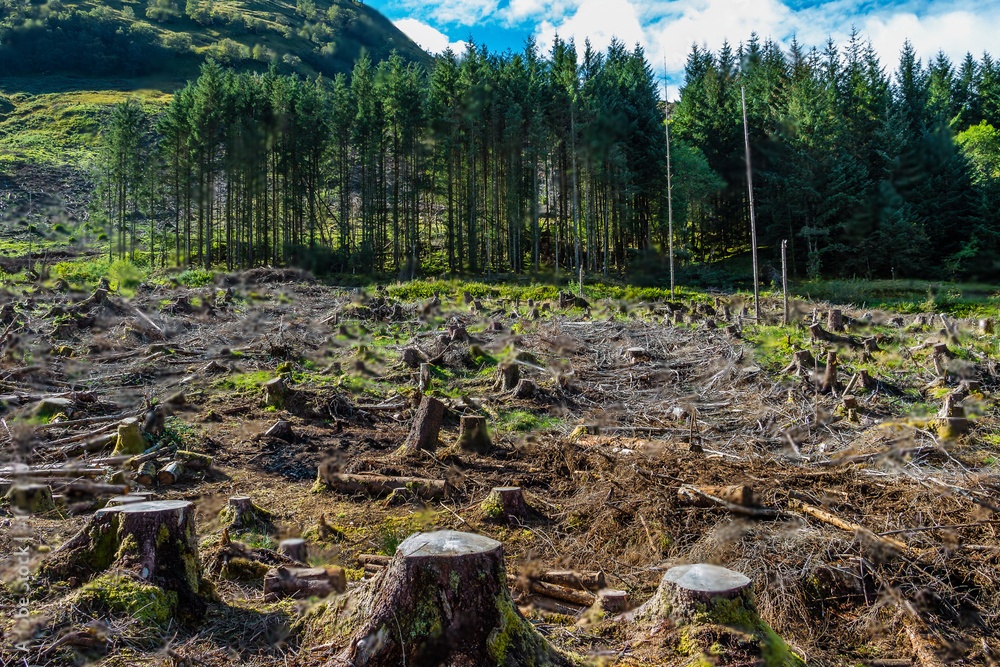
Is Deforestation the Cause for Global Warming?
Introduction
In the realm of environmental discourse, a few issues are the topic of concern. The issues like deforestation are worsening the environmental conditions and accelerating global warming concerns. The wanton destruction of forests is the prominent reason for fueling climate change resulting in a serious impact on the planet and its inhabitants. But is this the only effect that it puts or there are deeper complexities that stand within? To know the actual impact of forest deforestation on nature, let’s find out the truth, is deforestation the only cause of global warming? Let’s embark on the road to explore the reasons for deforestation and the multifaceted relationship between deforestation and global warming.
Deforestation, the Silent Disruptor:
Fundamentally, deforestation is the intentional removal of trees to make way for a variety of human endeavors, including logging, urbanization, and agriculture. Forest deforestation impact on nature seriously resulting in wide-ranging repercussions. Often called the “lungs of the Earth,” forests are essential for controlling the climate because they employ photosynthesis to store carbon dioxide, one of the main greenhouse gases. This natural carbon sink gets upset when forests are destroyed and trees are cut down, which releases stored carbon into the sky. It’s a vicious cycle whereby the loss of trees increases the amount of carbon emitted, intensifying the greenhouse effect and accelerating global warming. To conquer this, there is a need for forestation to save the environment as there is a significant role of trees in regulating climate.
The Carbon Dilemma
Deforestation undoubtedly plays a role in the emission of carbon dioxide, but how much does it actually cause global warming? The numbers hold the solution. The Food and Agriculture Organisation (FAO) of the United Nations estimates that deforestation contributes to around 10% of greenhouse gas emissions worldwide. Although this amount is noteworthy, it is insignificant when compared to the emissions that result from burning fossil fuels, which account for the majority of carbon emissions caused by human activity. Put differently, although carbon emissions from deforestation contribute to climate change, it is not the main or exclusive cause.
The Fossil Fuel Factor:
We must look beyond the forest canopy and into the world of fossil fuels in order to fully comprehend the causes of global warming. The majority of carbon emissions, or between 75 and 80 percent of all emissions globally, are caused by the burning of coal, oil, and natural gas for energy. The carbon produced from burning fossil fuels is a one-way ticket to the sky, where it remains for millennia, trapping heat and raising temperatures. This is in contrast to the carbon released from deforestation, which is part of the natural carbon cycle.
The Intersection of Deforestation and Climate Change:
Even though deforestation may not be the main factor contributing to global warming, its effects are nevertheless profound and complex. Deforestation causes habitat destruction, soil erosion, biodiversity loss, and disturbances to both local and global ecosystems in addition to its impact on carbon emissions. The repercussions of climate change are further exacerbated by the cascading effects of forest loss on rainfall patterns, water cycles, and regional climates. Deforestation and climate change are essentially closely related, with each exacerbating the consequences of the other in a vicious cycle of feedback.
The Road to Solutions:
There are several fronts where strong and immediate action is required if we are to confront the twin problems of deforestation and climate change. The protection and regeneration of forests must come first because they are essential carbon sinks and hotspots for biodiversity. This means putting into reality sustainable land-use policies, stopping illicit logging and deforestation, and empowering indigenous peoples and local communities to take care of their ancestral lands. To lessen our dependency on fossil fuels and minimize greenhouse gas emissions, we also need to speed up the switch to renewable energy sources and embrace more sustainable patterns of production and consumption.
Conclusion
In conclusion, although there is no denying that deforestation contributes to global warming, it is only one element of a much bigger picture. We must face the ubiquitous influence of fossil fuels and give the preservation and restoration of our planet’s forests first priority if we are to effectively address the underlying causes of climate change. Deforestation and biodiversity loss are the result of the end of life on the planet. We can only hope to pave the way for a future that is more resilient and sustainable for future generations if we take coordinated action at the local, national, and international levels.





